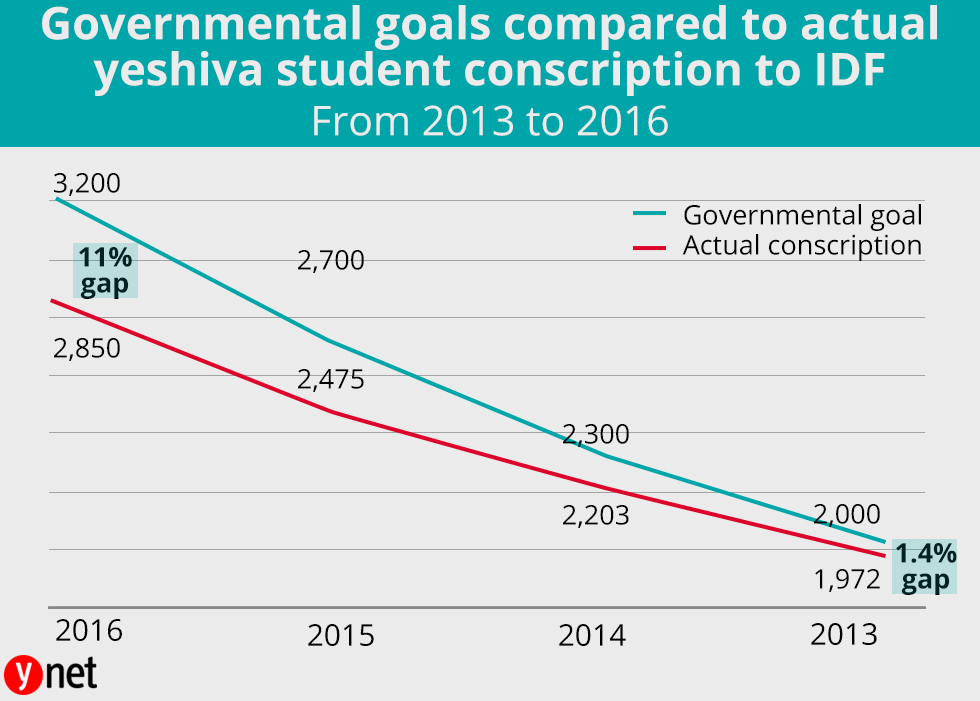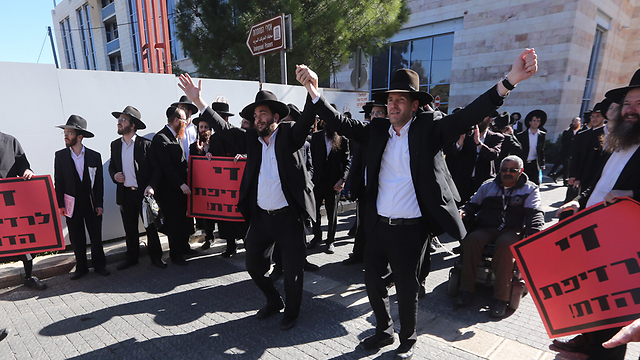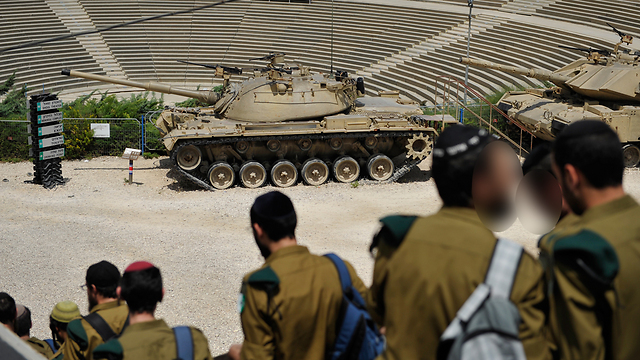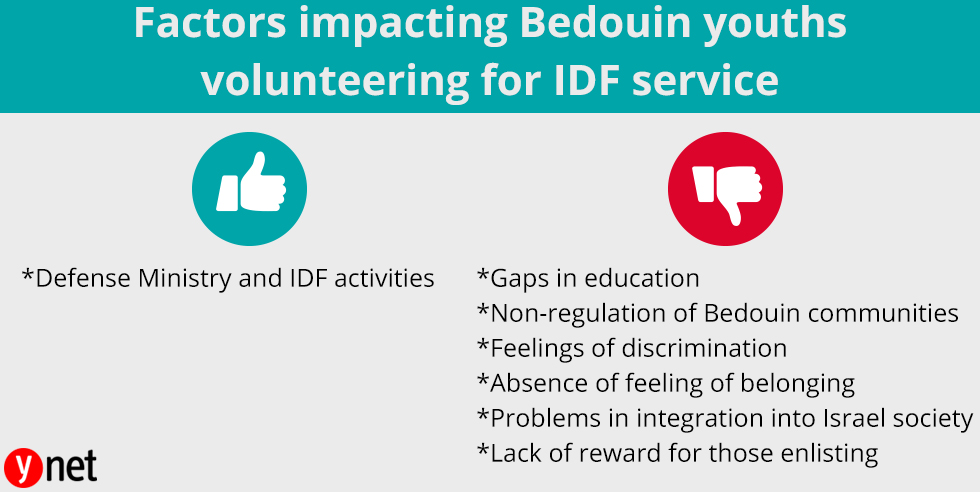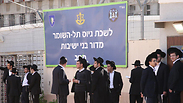
State comptroller: Government fails to meet Haredi draft goal
State Comptroller Shapira's report finds gap between yeshiva student conscription and recruitment goals has increased eightfold in 3 years, while pointing to government inaction to ameliorate situation; interministerial team to promote meeting conscription goals delayed, not yet operating; gap expected to increase if nothing is done, report warns; barriers persist in encouraging Bedouin youths to volunteer for IDF service, concerted Defense, Education Ministry action needed.
The number of Haredi conscripts to the IDF has grown gradually, but the gap between the breadth of yeshiva student conscription and recruitment goals became eight times larger over a three-year period, a report published Wednesday by State Comptroller Yosef Shapira showed, in the wake of a crisis around the same issue that threatened to dismantle the coalition.
"The gap has grown through the years and the fact that the government has not convened to discuss promoting yeshiva students' conscription goals has served to damage the government's own goals," Shapira noted.
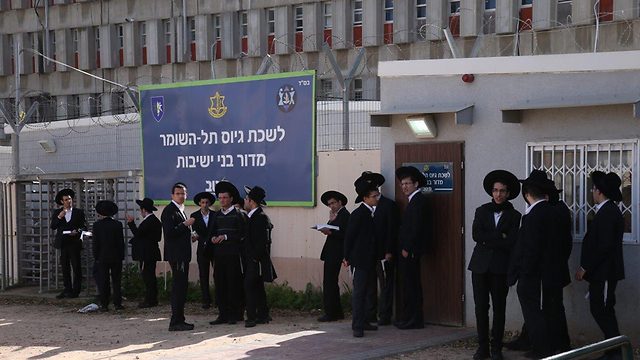
In a chapter dealing with "Defense Ministry actions to strengthen ties between youths and the IDF," the state comptroller claimed that the ministry's activities to promote meeting conscription goals for Haredim were delayed due to the increase in the number of Haredi conscripts each year.
Between 2013 and 2016, Shapira elucidated, the gap between actual conscription among yeshiva students and the state's conscription goals grew eight times larger—from a 1.4 percent gap in 2013 (1,972 recruits compared to a goal of 2,000) to an 11 percent gap three years later (2,850 recruits compared to a goal of 3,200).
The report further stated that in January 2016 the government created an interministerial team to promote meeting conscription goals and it was determined that the defense minister will put together an executive vote for a plan to meet said goals, bringing it before the government for approval within 40 days of its submission.
In reality, however, Defense Minister Avigdor Lieberman only brought an executive vote in February 2017, despite the fact that the interministerial team submitted a multiyear scheme to him as far back as April 2016.
"The discrepancy between goals set by the government for Haredi IDF conscription and actual recruitment has grown over the years," the state comptroller stated, adding, "The gap has grown through the years and the fact that the government has not convened to discuss promoting yeshiva students' conscription goals has served to damage the realization of the government's own goals."
State Comptroller Shapira further noted that despite the Defense Ministry director-general's decision dated January 2015 to create a recognition, supervision and enforcement apparatus for yeshiva students, in reality the creation of the government body was sluggish and authorization for it was received only in May 2017—and it has yet to actually begin operations.
On the same topic, Shapira determined that reports about the irregular situation and a "significant lack of effective and meaningful enforcement mechanisms allowing proper follow-up of yeshiva students whose service was deferred and calling in those who do not shoulder the burden of yeshiva studies as the conscription law stipulates" were still relevant.
The State Comptroller's Office therefore cautions both the Defense Ministry and the IDF that "the growth of the gap between conscription goals and actual conscription may carry on for years to come if relevant authorities do not rectify the situation to promote meeting said goals."
Another phenomenon apparent in Shapira's report was barriers around encouraging Bedouin sector youths to volunteer for IDF service. "Not enough was done to encourage minorities in general and Bedouin youths in particular to volunteer for army service," it determined.
The report further noted that "the defense establishment had done much to encourage the Bedouin populace to volunteer for service and to bolster volunteers' numbers, and to that end heritage study days and seminars are held."
The aforementioned positive actions notwithstanding, the report added that other significant issues whose handling is vital to increase the rate of Bedouin volunteering—gaps in education, non-regulation of communities, feelings of discrimination and so on—which are out of the defense establishment's purview, also impacted willingness to volunteer.
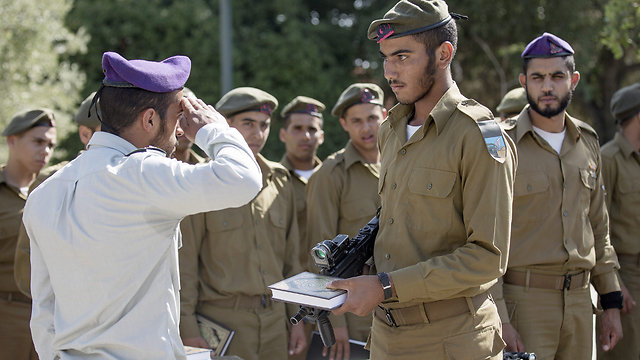
Furthermore, the report said, IDF representatives did not contact Education Ministry officials to broach serious issues whose mishandling may decrease the number of volunteers, such as education gaps between Bedouin high school students and students in the general populace and the policy of some Bedouin schools to bar army representatives from entering classrooms to speak to students.
Concluding the Bedouin volunteering portion of the report, State Comptroller Shapira recommended that the Education Ministry, along with the defense establishment and IDF, "delineate a program in a director-general's circular to encourage Bedouin youths to volunteer for army service."
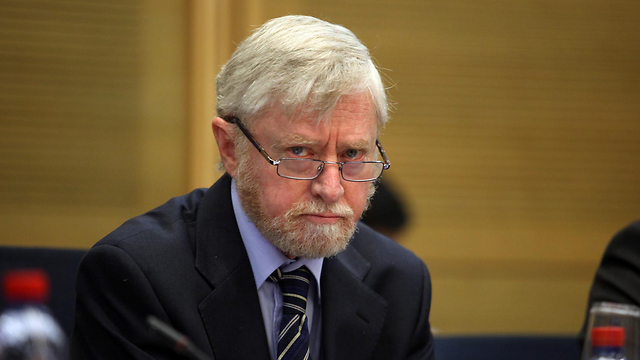
The state comptroller's report also dealt with administrative aspects of medical committees determining the rights of disabled IDF veterans, noting that the Defense Ministry's Department of Rehabilitation did not endeavor to correct faults found in previous audits.
Moreover, former justice Shapira noted that the department is taking longer to process disability claims and that a survey of disabled veterans conducted by the State Comptroller's Office showed dissatisfaction with the medical committees' work, and with the attitudes they were faced with.
An additional chapter, dealing with caring for lone soldiers throughout their army service and after they are discharged, found a series of flaws: lack of thorough examination of a lone soldier's basic needs, insufficient residential solutions, post-service Defense Ministry assistance being insufficient to meet lone soldiers' needs and a lack of an interministerial work plan for receiving discharged lone soldiers into Israel society.










